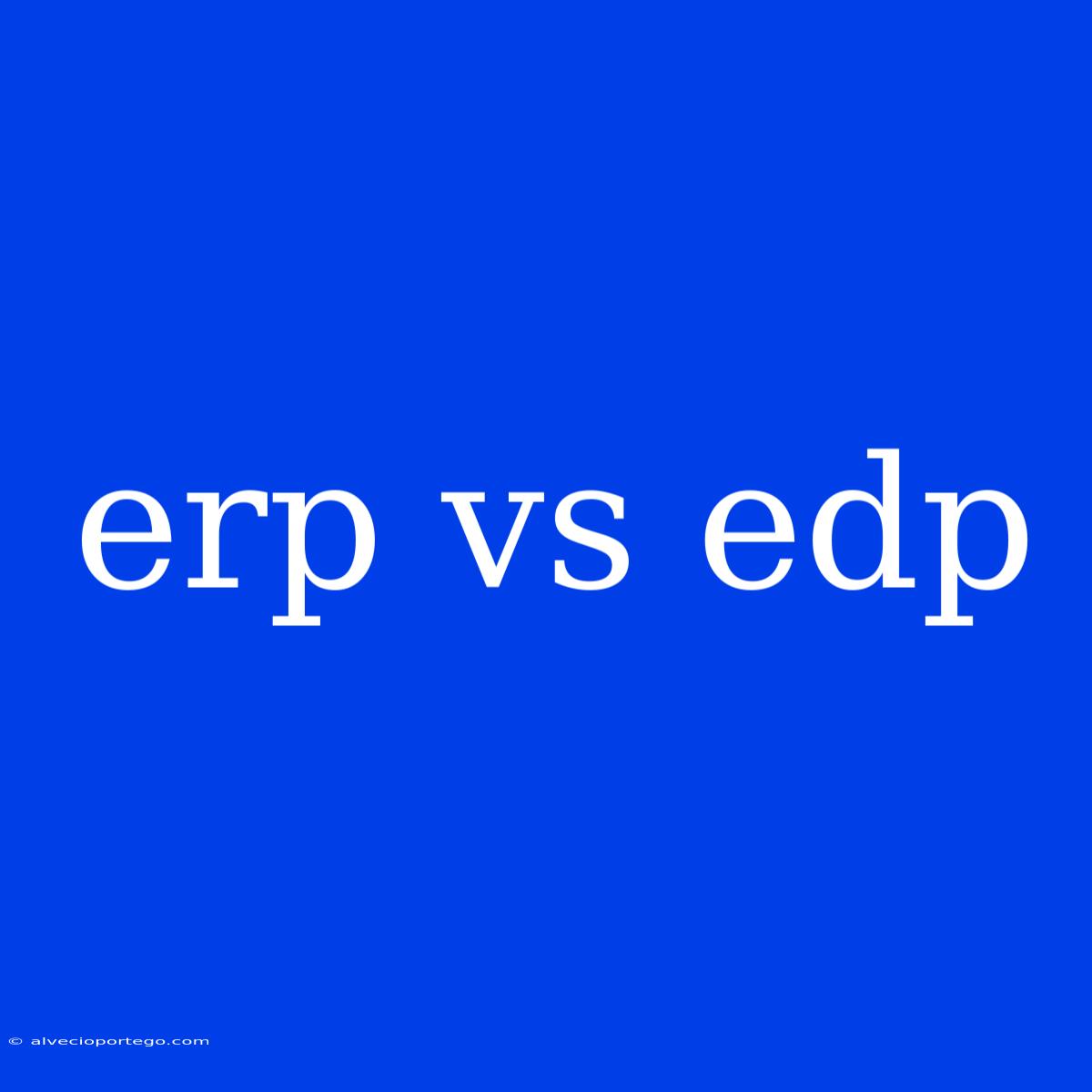ERP vs. EDP: Understanding the Differences
Enterprise Resource Planning (ERP) and Electronic Data Processing (EDP) are often used interchangeably, but they have distinct meanings and functionalities. While both deal with managing data and processes within an organization, understanding their differences is crucial for choosing the right solution.
ERP: A Holistic Approach to Business Management
ERP stands for Enterprise Resource Planning. It's a comprehensive software system that integrates various business functions into a single platform. It manages critical aspects such as:
- Finance & Accounting: Accounts payable, receivable, budgeting, financial reporting.
- Human Resources: Payroll, employee records, benefits management.
- Supply Chain Management: Procurement, inventory, warehousing, distribution.
- Customer Relationship Management (CRM): Sales, marketing, customer service, and support.
- Manufacturing: Production planning, scheduling, quality control.
Key features of ERP systems:
- Centralized data: All departments share a single database, eliminating data silos and providing real-time visibility.
- Process automation: Automates repetitive tasks, reducing errors and improving efficiency.
- Improved decision-making: Real-time data and analytics provide insights for better strategic decisions.
- Enhanced collaboration: Facilitates seamless communication and collaboration across departments.
EDP: Focus on Data Processing and Management
EDP, or Electronic Data Processing, refers to the use of computers and software to process and manage data. It focuses on:
- Data input: Capturing and entering data into the system.
- Data processing: Transforming data into meaningful information through calculations, sorting, and analysis.
- Data output: Generating reports, documents, and other outputs from the processed data.
Key aspects of EDP:
- Data storage and retrieval: Efficiently manages large volumes of data, allowing for easy access and retrieval.
- Data security: Implements measures to protect sensitive data from unauthorized access and breaches.
- Data analysis: Uses tools and techniques to analyze data and identify patterns, trends, and insights.
Differences in Scope and Functionalities
Scope:
- ERP encompasses a wider scope, encompassing all major business functions.
- EDP focuses on specific data processing tasks and doesn't necessarily cover all business areas.
Functionalities:
- ERP involves complex integrations, automation, and decision support tools.
- EDP primarily handles data input, processing, and output, with a focus on data integrity and security.
Choosing the Right Solution
The choice between ERP and EDP depends on your specific needs and organizational goals.
- ERP is suitable for large, complex organizations that require a comprehensive, integrated solution for managing all aspects of their business.
- EDP is better suited for smaller businesses or specific departments that need to automate and manage data processing efficiently.
In summary:
- ERP is a holistic approach to business management, encompassing various functions.
- EDP focuses on efficient data processing, storage, and retrieval.
By understanding the differences between ERP and EDP, organizations can choose the right solution to streamline their operations, improve efficiency, and make informed decisions.

